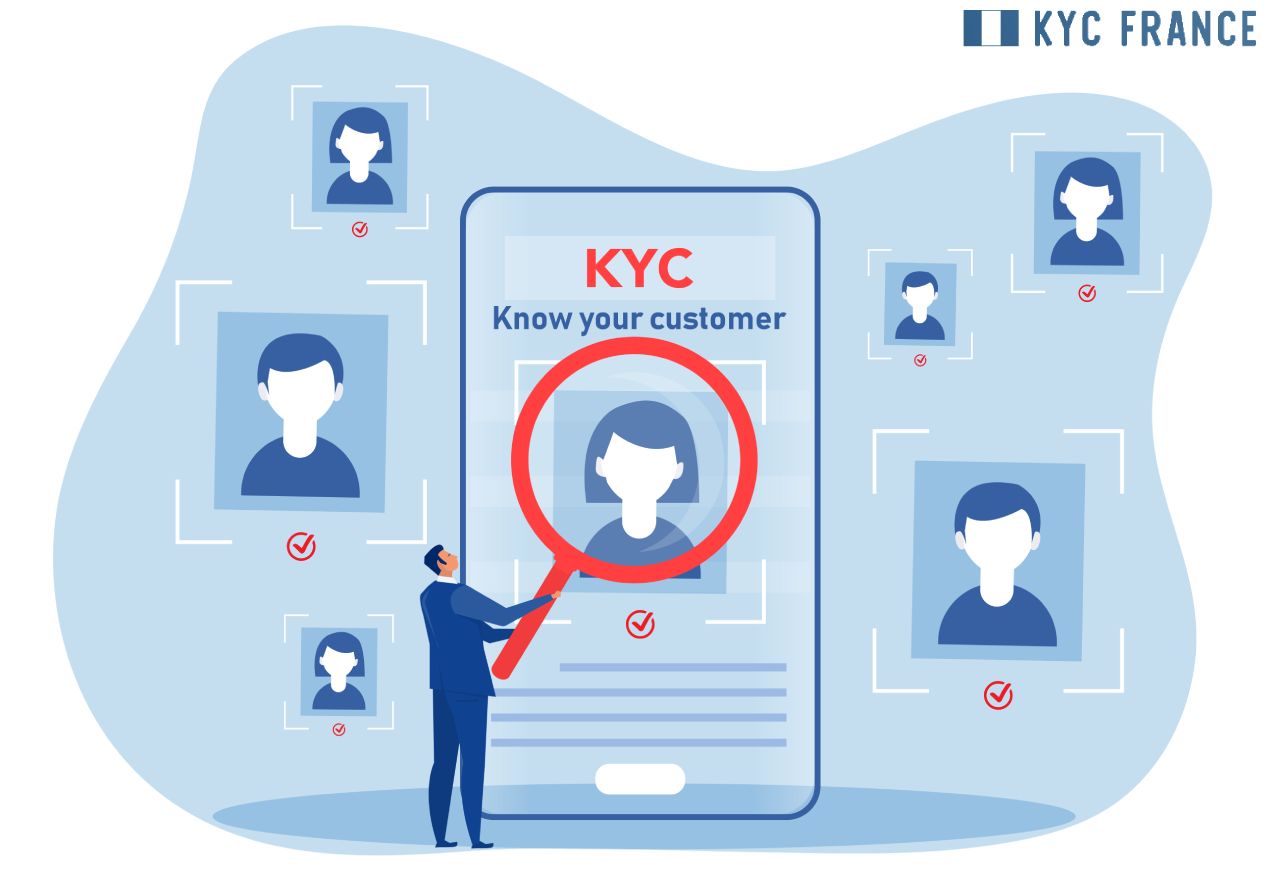KYC in banking is a fundamental process aimed at identifying and verifying customers’ identities ensuring that they are not involved in any illegal activities like money laundering or terrorist financing. In today’s interconnected world, KYC plays an important role in preventing businesses from fraud, and protecting the integrity of financial institutions. KYC also helps in maintaining businesses their brand integrity while maintaining regulatory compliance.
What is KYC and Who Needs to Perform This Process?
Know your customer (KYC) is a process used to identify and verify a client’s identity and make the onboarding process smooth. It detects those clients who are involved in any illicit activities and prevents the businesses from financial fraud. KYC process involves gathering relevant information about the client like their name, address proof, date of birth and in some cases government issued ids are also accepted.
KYC in banking is necessary as it enables banks to authenticate the identity of their customers and assess the potential risks associated with doing business with them. Any business or financial institution while opening an account or onboarding a client needs to perform KYC verification. KYC is performed by all industries including-
- Banking and Finance
- Cryptocurrency
- Fintech
- Healthcare
- Insurance
- Online gaming
Why is KYC Important for Banks?
KYC is essential for banks to maintain the sincerity of their transactions and adhere to regulatory standards. By verifying customer’s identities and conducting thorough due diligence, banks have the access to prevent fraud and money laundering and safeguard their customer from financial loss. KYC in banks helps in building a strong customer trust which ensures the confidentiality of client’s personal data. Failure in compliance with regulation may lead to heavy fines and severe penalties, making it mandatory for banks to prioritize the KYC verification process.
Benefits of KYC for Banks
Implementing robust KYC solutions in banks delivers multiple benefits like-
1. Minimize risk: It minimizes the risk of financial fraud by verifying and identifying customer’s identities by conducting customer due diligence on them.
2. Streamline onboarding process: KYC allows banks to streamline their onboarding process while reducing operational costs and maximizing efficiency in operations.
3. Regulatory compliance: Banks maintain KYC records to demonstrate regulatory compliance to avoid heavy fines and penalties.
4. Utilization of advanced technologies: Joining hands with KYC services providers access banks to innovative technologies and expertise in identity verification and KYC solutions, leading to enhancing their KYC capabilities.
What Triggers KYC Verification in Banking?
KYC verification in banking may be triggered by several factors like changes in customer profile, unusual high risk transactions, change in nature of customer’s business, addition of a new party to an account, or regulatory updates. Banks may also get triggered by the results of initial CDD and ongoing monitoring, where they identify red flags in frequent international payments, wire transfers and interactions with off-shore financial firms. Automated KYC solutions play a major role in detecting suspicious transactions or activities and triggering additional verification processes. These solutions employ advanced technologies including data analytics and machine learning algorithms to flag unusual activities in customer behavior. Processing automated KYC solutions in bank operations allow them to detect and prevent financial loss while minimizing manual human efforts and operational costs.
Key Components of KYC
KYC includes some key components which contribute in swiftly identifying and verifying a client’s identity during the client onboarding process. The key components include:
Customer Identification Program (CIP):
All banks or financial institutions have their own CIP process which may require different types of customer information depending on the firm’s requirement. In this process the firm asks for personal information including name, date of birth, address proof and some other identification documents. The provided information is used to identify and verify customer’s before onboarding them.
Customer Due Diligence (CDD):
The main aim of performing CDD on a customer is to detect the level of risk associated with them. It also includes checking of transactions made by the customer. If the institution finds that there is someone who owns 25% of a legal entity or more with an individual handling them, they have all rights to authenticate that person. There are 3 types of CDD process-
Simplified due diligence (SDD):- Conducted when a customer poses a low level of risk.
Standard customer due diligence (CDD):- Collect user information and check risk associated with them.
Enhanced due diligence:- Conducted when a user poses a high level of risk in money laundering or any other financial crime.
KYC France Leading the Way
KYC plays a major role in the banking and finance industry by enabling banks to verify the identity of their customers and safeguarding them from financial crimes. KYC France being the most secure and reliable KYC service provider in France offers robust KYC solutions customized as per the requirements of businesses. They deliver solutions with advanced technologies and expertise in regulatory compliance. By partnering with KYC France, banks can leverage innovative technologies and protect their activities against financial crimes.

